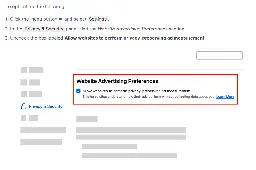Firefox enables user tracking
Firefox enables user tracking

mstdn.social
Lokjo - EU's Gmaps replacement (@Lokjo@mstdn.social)

... I mean, WTF. Mozilla, you had one job ...
Edit:
Just to add a few remarks from the discussions below:
- As long as Firefox is sponsored by 'we are not a monopoly' Google, they can provide good things for users. Once advertisement becomes a real revenue stream for Mozilla, the Enshittification will start.
- For me it is crossing the line when your browser is spying on you and if 'we' accept it, Mozilla will walk down this path.
- This will only be an additional data point for companies spying on you, it will replace none of the existing methodologies. Learn about fingerprinting for example
- Mozilla needs to make money/find a business model, agreed. Selling you out to advertisement companies cannot be it.
- This is a very transparent attempt of Mozilla to be the man in the middle selling ads, despite the story they tell. At that point I can just use Chrome, Edge or Safari, at least Google has expertise and the money to protect my data and sadly Chrome is the most compatible browser (no fault of Mozilla/Firefox of course).
- Mozilla massively acts against the interests of their little remaining user base, which is another dumb move made by a leadership team earning millions while kicking out developers and makes me wonder what will be next.

